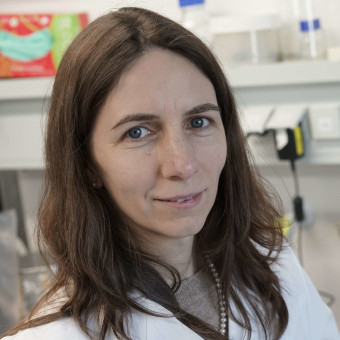09.04.2020 News
Agriculture and forestry Plants Agriculture sciences
Satellites track algal blooms
A new algorithm allows the identification of phytoplankton species in the ocean based on satellite data and predicts the growth of toxic algal blooms.
09.04.2020 News
Agriculture and forestry Plants Agriculture sciences
A new algorithm allows the identification of phytoplankton species in the ocean based on satellite data and predicts the growth of toxic algal blooms.
21.04.2020 News
Agriculture and forestry Animals Biodiversity
Epigenetic processes have less influence on the rapid adaptation of organisms to environmental changes than previously assumed. This is the result of a study led by researchers from Kiel.
03.04.2020 News
Pharmaceutical industry unspecific Biotechnology/Systems biology
The Martinsried-based company GNA Biosolutions plans to launch an ultra-fast corona test based on its laser PCR. The BMBF has funded the development of the method.
08.04.2020 News
Chemistry unspecific Chemistry
In the corona crisis, disinfectants are a scarce commodity. German bioethanol producers are changing their policy and now produce alcohol for hygiene products rather than petrol.
27.04.2020 News
Agriculture and forestry Plants Agriculture sciences
A new irrigation concept for vegetable cultivation could set a precedent: In the Hypowave project, treated water from a sewage treatment plant was used for growing lettuce in the greenhouse.
22.04.2020 News
Chemistry Plants Chemistry
The custom-made product for a bicycle drinking bottle combines functional properties and enables use in a bio-based recycling economy.
14.04.2020 Studies and statistics
Food Plants Nutritional sciences
In order to make food consumption more sustainable, a research team led by the University of Göttingen has investigated the form in which algae are accepted as part of the diet.

15.04.2020 Interview
Chemistry Microorganisms Biotechnology/Systems biology
Biochemist Miriam Rosenbaum is a true pioneer in the field of electrobiotechnology. In the following interview she explains how she intends to replace oxygen in biotech processes.
29.04.2020 News
Chemistry Microorganisms Biotechnology/Systems biology
Researchers are developing an enzymatic process to make fivefold sugar available to produce biofuels.
27.04.2020 Success story
Chemistry Microorganisms Biotechnology/Systems biology
A new research project aims to examine bacteria that have so far been biotechnologically largely unnoted for their suitability for the bioindustry.

27.04.2020 Interview
Chemistry Plants Plant and process engineering
Since 2013 PAPACKS has been developing packaging and products from renewable resources.
07.05.2020 News
Agriculture and forestry Plants Agriculture sciences
Partners from research and industry hope to use green waste as a source of raw materials for biorefineries in order to produce basic chemicals as well as electrodes.
24.04.2020 Studies and statistics
unspecific unspecific Biodiversity
An analysis of worldwide long-term studies provides insights into the worldwide situation of insects and shows where their protection is most urgent.
20.05.2020 News
Agriculture and forestry Plants Agriculture sciences
A team of researchers is the first to provide an explanation why plants cannot absorb an unlimited amount of water through their roots.
06.05.2020 News
unspecific unspecific Bioökonomie mitgestalten
More than a quarter of all German citizens are convinced that the corona pandemic can lead to a change in people's thinking towards more sustainability and climate protection.
28.05.2020 News
Chemistry Plants Chemistry
Fraunhofer researchers have developed a miniaturized plant to study the processes involved in the production of methanol from carbon dioxide and hydrogen.
19.05.2020 News
unspecific unspecific Bioökonomie mitgestalten
In a new bioeconomy cluster, 15 institutes of the Zuse-Gemeinschaft are combining their activities in order to promote industrial research for a biobased economy.
02.06.2020 News
Chemistry Microorganisms Biotechnology/Systems biology
Ferulic acid is a promising natural substance. Researchers have now found a way to produce this active ingredient using bacteria.
21.05.2020 News
unspecific unspecific unspecific
The majority of Germans are in favor of sustainable economic activity, but still have difficulty making sacrifices. This is shown by the latest TechnikRadar conducted by acatech and the Körber Stiftung.
22.05.2020 Studies and statistics
unspecific unspecific Biodiversity
Since 2018, the TechnikRadar of acatech and the Körber Stiftung has been asking what Germans think about technology. In its third edition in 2020, the study focuses on the topic "Bioeconomy".